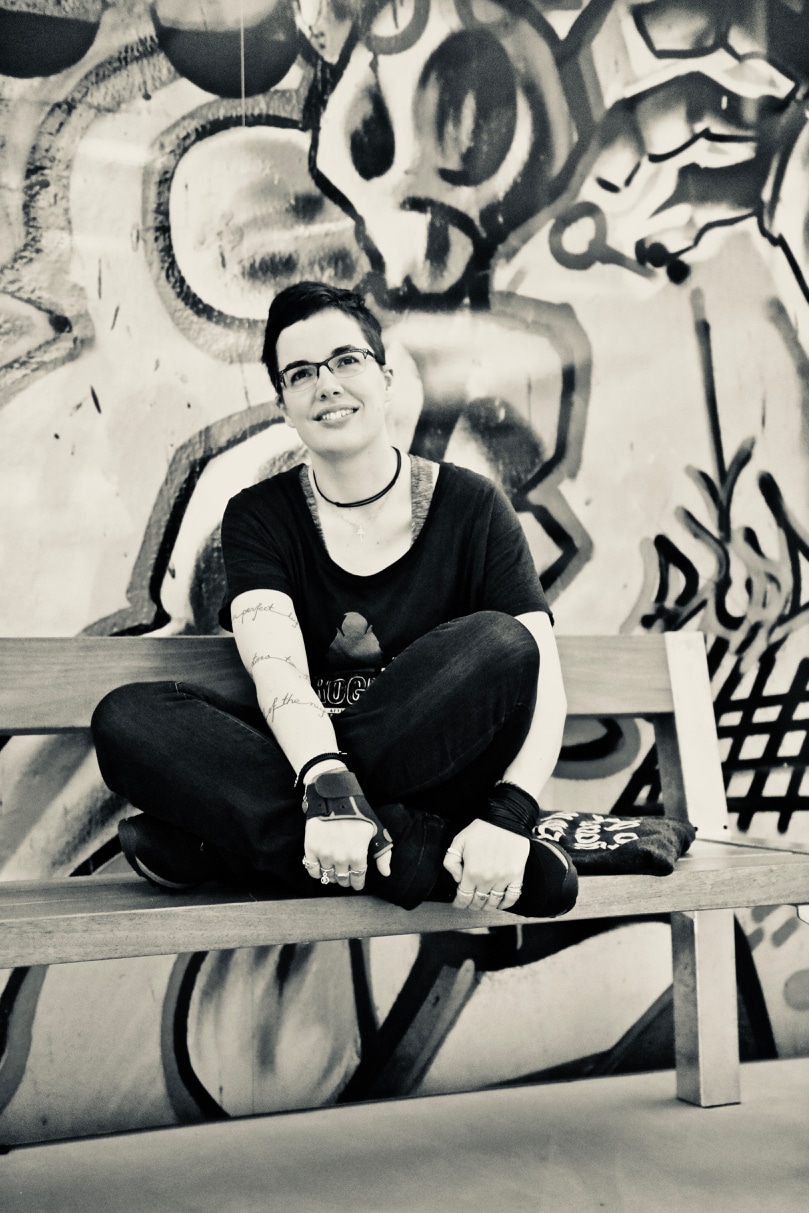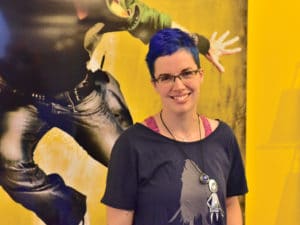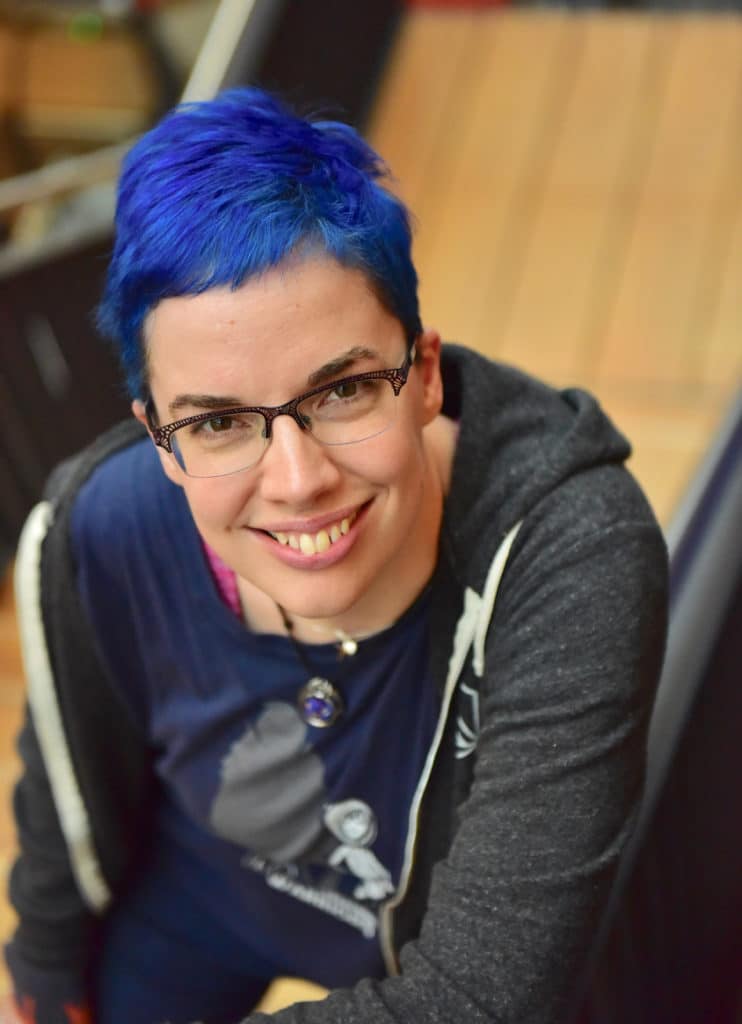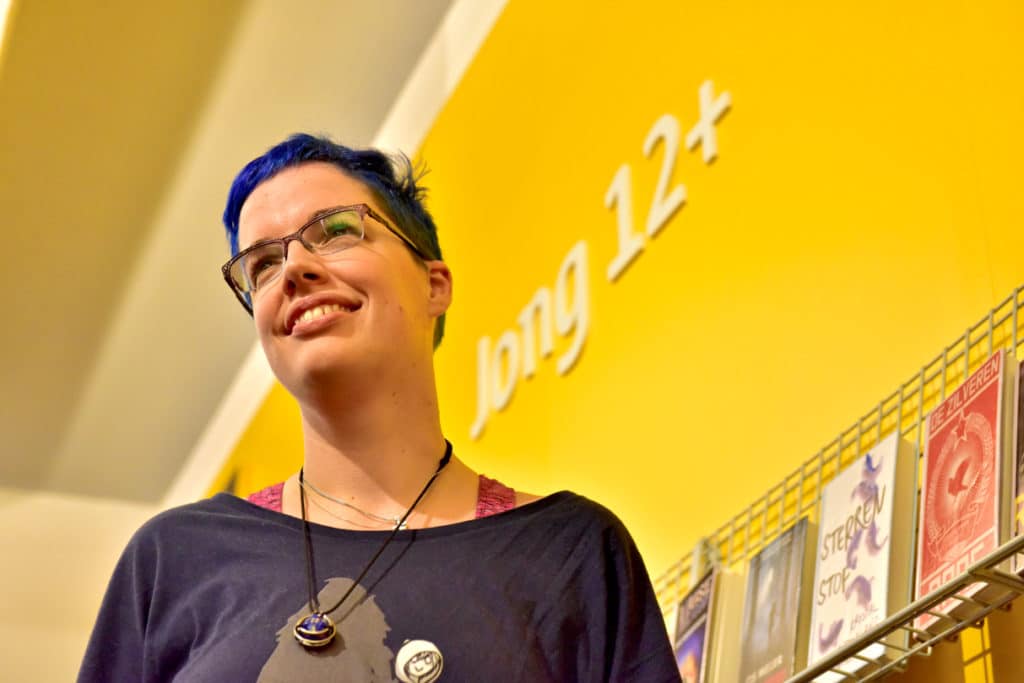This young writer from Hengelo - she turns 32 in January - sold off her debut novel This Is Where It Ends over a quarter of a million copies in the United States. She spent 64 weeks in The New York Times-bestseller list. So Hengelo-based Young Adult writer Marieke Nijkamp did feel slight pressure while writing her second book, Before I let you go.
It is an exceptional story, which would lend itself well to a children's book: young woman from Hengelo, municipal civil servant, writes a book in English, snares a literary agent in America and becomes a best-selling author. It is true story. And the fairy tale continues. Also, the first reviews of her second book Before I Let Go (Before I let you go) are mostly positive.

'Before I Let You Go' is set in the small isolated village of Lost Creek in Alaska. Main character Corey has moved to Canada, but returns after seven months to look for her friend Kyra. But just before she goes back, Kyra is found under the ice. Suicide, they say, but Corey does not trust it, and the extremely hostile treatment by her former neighbours does not ease her distrust.
Are we actually doing this interview in English or Dutch?
'Ha ha, it's fine in Dutch, you know. Or in flat Twents, if you like? I never lived abroad, was not raised bilingual and did not study English. I started writing in Dutch, but during my studies I travelled a lot - I was in London every month to go to the theatre and slept in a youth hostel, in a room with fourteen others. Later, I sometimes wondered how I actually did that as a student. I think by being very, very Dutch with my money.'
'I started writing in English because friends wanted something to read during those trips. I liked that. I always read a lot of books in English or other languages - I am a quick reader, sometimes I read as many as five hundred books in a year. At that time, Young Adult was not yet a well-known genre in the Netherlands, but it was in America. So I ordered a lot over the internet and exchanged tips with friends.'

Or as it goes on websites: if you like this, you also like this.
'Exactly. Meanwhile, my focus is very much American, because to keep up with writing in the US, I also have to read a lot. The funny thing is that in the Netherlands you read a lot more translated books anyway than they are used to abroad. In England and America, only 1 per cent of all literature published is translated.'
And there you come, as an unpublished Hengelose with a book written in English, knocking on an agent's door: hello! I would like to be published in America?
'Yes, that felt the most logical for me anyway, because that YA market, the offerings for that age group, was already so much more developed in America and because my way of writing fiction fitted well with that. Writing acquaintances in the Netherlands said: you're crazy, you'll never succeed. That slush piles of manuscripts sent in are quite extreme in America; one literary agent gets about ten thousand books sent in a year. And that's then the first hurdle you have to overcome, because without an agent you don't get in to a publishing house. I was lucky that the literary agent I approached was very enthusiastic.'

You are now past 30. Why does YA continue to fascinate you so much? Do you have a Peter Pan syndrome?
'Yes, absolutely! No way, I enjoy being 31 much more than being an adolescent. But a lot is possible within this genre - from fantasy to very literary books - and that gives me as a writer a lot of room to experiment. A lot of themes are also possible, young people don't shy away from as much as you might think. Living Dead Girl by Elizabeth Scott, for example, is about a girl who is kidnapped and held and abused by the perpetrator. And the best-selling children's book right now, The Hate U Give by Angie Thomas, is about a black girl whose best friend is murdered by a police officer - about institutional racism, in other words.'
'Young people are very politically engaged, especially right now in America. Because with a president like Trump, you can't escape having an opinion on that - politics affects our daily lives. It's very nice to see how young people are engaged with that.'

Your own themes don't lie either. Your first book was about a high school shooting, your new novel about a manic-depressive girl who commits suicide.
'True. If there is a school shooting takes place, the news is often mainly about the perpetrator: what kind of person it was and how that person came to that act. I therefore wanted to show precisely its impact on the victims. In Before I let you go is about Kyra, who is not understood by those around her. How do we deal with people who are different? Suicide is a regular occurrence, why is that? If you are born with a particular disability, like Kyra with her bipolar disorder, it is not your own fault. Yet in society you are sometimes quite demonised or dehumanised.'
'That's why I felt it was important to describe this bipolar disorder in a respectful way, so that it would not contribute to that stigma. I know what it's like to have a disability: I myself have hypermobility, causing me a lot of pain in my joints. As a result, I have braces needed, and I often walk with a cane. I am regularly laughed at and scolded. With this story, I wanted to explore how far people will go. What role do bystanders play in such an event?'
Did it give you answers, by also putting yourself in the position of the 'perpetrators'?
'Yes, I think I gained more insight into how group processes work and what motivates people to make certain choices. Corey doesn't go completely off the rails either - she doesn't speak up for months after moving Kyra. I understood a lot about her, even though I did not approve of her behaviour. That's what this book brought me: I got a better understanding of how things could come to this. But definitely not for the fact that it can come to that.'
Where to buy?
Before I let you go, HarperCollins, €17.99

